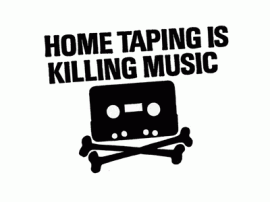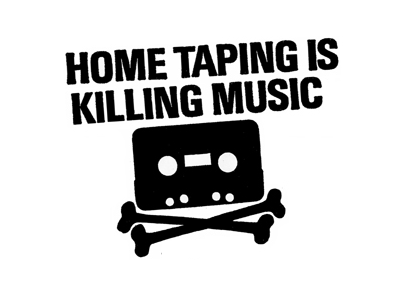 Governments around the globe are passing increasingly repressive pro-copyright legislation to protect the music/film/etc industries – laws where due process is getting sidelined and being replaced with “trusting” those with an obvious gain in abusing the system. I’ve campaigned on these pages previously how DEACT, HADOOPI, SOPA, and Protect IP are all hugely anti-consumer and massive violations of personal privacy – but we now have a case to prove just how unaccountable and utterly corrupt the whole setup is in a story unearthed by our friends over at TechDirt.
Governments around the globe are passing increasingly repressive pro-copyright legislation to protect the music/film/etc industries – laws where due process is getting sidelined and being replaced with “trusting” those with an obvious gain in abusing the system. I’ve campaigned on these pages previously how DEACT, HADOOPI, SOPA, and Protect IP are all hugely anti-consumer and massive violations of personal privacy – but we now have a case to prove just how unaccountable and utterly corrupt the whole setup is in a story unearthed by our friends over at TechDirt.
Back in 2010 the US government agency ICE seized a number of domain names on the accusation of criminal copyright infringement. That these confiscations were done only on the accusations of some copyright industry exec, and not after anyone had been found guilty at trial should have sent alarm bells ringing, but copyright lobbyists have managed to persuade politicians that they should be “trusted”, and their claim of copyright trumps the rights of anyone else to conduct their business online or to express their opinions on there own website or blog.
A number of the sites and domains seized were committing criminal copyright infringement, but a number were not – and were in fact just popular music blogs such as the case with Dajaz1.com – which was a popular hip hop blog that is used and referenced in the tweets of a number of artists, and as such is certainly not a “rogue site”. In fact, the list of songs sent to ICE to claim the site was involved in such criminality in distributing was a list sent by Carlos Linares, VP of Anti-Piracy Legal Affairs for the RIAA – someone closer to a lobbyist than actually directly involved with any labels and the list was erroneous at best, or could easily be described as outright fraud. The songs that Dajaz1 was supposed to have illegally shared and caused the domain seizure were actually sent to the blog by the PR departments of various labels to get them to publicize. And one of the songs was released on a label that has nothing to do with the RIAA – and as such Linares had no right to claim to represent that artist or label at all. Whoops.
Now whilst this ineptitude on the part of the RIAA and then ICE does seem to be expected as there is no oversight or due process in these cases – one would hope that the situation would be resolved relatively quickly due to there being no evidence of wrongdoing on the part of Dajaz1. However what happened instead was the US government flat out lying in claiming that no-one was contesting the seizures as well as continually excluding the founders of Dajaz1 and the legal counsel, Andrew P. Bridges, from ever appearing in court to contest the issues or even reading the motions for or issuances of extension after extension.
In theory, under US law – the government has 60 days after seizing property to notify its owners of the seizure. The owner then has 35 days to request a return of the property or the government can in effect keep it, but if such a request is filed the government has 90 days to start full forfeiture proceedings or give the property back. These timescales are really there to stop criminals destroying evidence, but even two months without your property (quite possibly property needed to continue running a business) is a very long time. The US government in this case, however, applied for extension after extension in secret so Dajaz1 could not put there case or see any progress – and they have only just had the domain returned to them – all without any charges being filed. So we have a case of an innocent party being wrongly accused, their property confiscated without any due process, and then the government using sealed court documents to exclude the possibility of any due process going forward. Mistakes compounded by more mistakes or cover-ups for an entire year – not something you would expect in the “land of the free”.
Sealing court documents in a case of alleged copyright infringement is ridiculous in itself – what exactly could be so sensitive that the defence counsel could not see any of the “evidence” or appear in front of a judge to contest it? If the evidence was so super incriminating – then why have no charges been filed? This entire story is just a showcase for what happens when you make criminal laws with no respect for due process or the judicial system, and governments around the world are going much further than this with new pro-copyright/anti-everybody-else laws. I call bullshit on the entire corrupt affair.
[via TechDirt]


Pingback: SOCA Takes Down UK Music Blog RnBXclusive | TechFruit